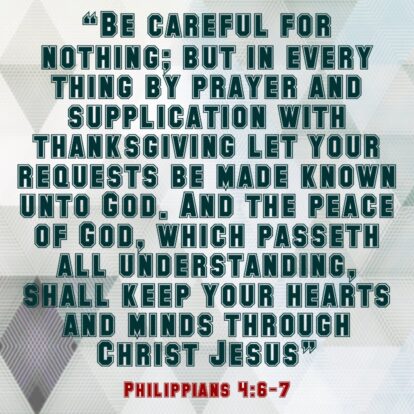Introduction
In Christianity, one of the fundamental beliefs is that victory over death is possible because Jesus rose from the dead three days after he was crucified and dead in the grave. This Resurrection of Jesus is an historical fact as corroborated by many witnesses.
There are many religions in the world, and some have very similar beliefs and practices as others. In fact, many colleges and universities offer courses, such as Comparative Religion, that focuses on the doctrines, themes, and practices of the world’s religions. As you study these religions and no matter where they are taught, you will find that there are five main world religions:
-
-
- Christianity
- Islam
- Hinduism
- Buddhism
- Judaism
-
What Do Christians Believe?
Christianity is the largest religion in the world. And although we call it a religion it really is different than all others in that the focus is on a relationship with the One True and Living God present in three distinct persons, The Father, The Son and The Holy Spirit. The fundamentals of the Christian faith include:
- Christians believe that there is One God in three distinct persons, the Father, the Son, and the Holy Spirit (Genesis 1:1, 26; 3:22; 11:7; Isaiah 6:8, 48:16, 61:1, Matthew 3:16-17; 28:19; 2 Corinthians 13:14). He always was, always is now, and always will be. He is all powerful, all knowing and present everywhere. He is holy, full of grace, righteous and just.
- Christians believe that God created the universe, and He is the Ruler of His creation which includes human and spiritual beings (Genesis 1).
- Christians believe in the authority of the Holy Bible, which is God’s inspired words (2 Timothy 3:16-17), and it is without error. The Bible is the guide for daily living.
- Christians believe that man was created in the image of God (Genesis 1:27) and that he has a physical and spiritual being and that he was made to fellowship with God forever. But because of man’s disobedience (sin) he is separated from God and dies (Romans 5:12) unless he is delivered from that sin.
- Christians believe that because God loves all mankind, He sent His Only begotten Son, Jesus, as the Deliverer (John 3:16). They believe in what is called the essentials of the gospel as the one and only way to be delivered from certain death and given eternal life. Faith in Christ alone is the only way to be saved from death. The simple gospel essentials are (1 Corinthians 15:3-8):
- Christ died for our sins according to the Scriptures.
- He was buried and stayed in the grave for a couple days.
- He rose on the third day according to the Scriptures.
- There were witnesses to His resurrection.
- Christians are parts of a body of believers known as the Church of which God ordained Jesus as the head (Ephesians 5:23; Colossians 1:15-18). Most believers attend a local church assembly for fellowship and teaching from the Word of God.
Jesus’ Resurrection Validated by Witnesses
In his first letter to the Corinthians Paul spoke to his discovery that many of the Corinthian Christians questioned the validity of the resurrection; not only Jesus’ resurrection but also the resurrection of all the dead. These people had several things that influenced their doubt and maybe even disbelief in resurrection. A great Bible teacher once shated that there were at least five things that could have made them think as they did: (1) They were influenced by the Sadducees who denied the resurrection, (2) They were influenced by Greek philosophy that taught the immorality of the soul but rejected bodily resurrection, (3) Gnosticism was a great influence, which denied Jesus’s bodily resurrection (4) They could have thought the resurrection had already occurred, and/or (5) They thought that they had already shared the immorality of Christ in a spiritual way.
Validation of the resurrection can be offered in two ways:
(1) There were many witnesses to the resurrection, and
(2) We see other Old Testament and New Testament examples of the resurrection and the belief therein. Paul shared this information with the Corinthians to encourage them to believe.
Paul writes in 1 Corinthians 15 that many were witnesses to the resurrection of Jesus. He says Jesus was seen of Cephas (Peter), then of the twelve and then by 500 brothers as well as His unbelieving brother James (John 7:5; 1 Corinthians 15:7) and other Apostles. The book of Acts 9:1-19 records how Paul himself, while on the road to Damascus, was possibly the last one to witness the resurrected Christ. Paul was humbled and forever changed by Jesus’ visit to him and claims that he is an apostle only by the grace of God
In addition to what Paul shares, we see a wonderful harmony of the Gospels as Matthew, Mark, Luke, and John all record that Jesus appeared to His astonished disciples after His crucifixion and death. Let’s not forget the history of the Apostle Thomas (Didymus) who was not there when Jesus appeared to the others. John’s Gospel gives some great detail of how after several days Jesus reappeared and responded to Thomas’ doubt with a sign for his unbelief (John 20:24-31).
Jesus appeared to Mary Magdalene and another Mary after his resurrection as well as two other men enroute to Emmaus (Matthew chapters 26-28, Mark 14-16, Luke 22-24, and John 18-21). And finally, we read that Jesus showed Himself to the disciples again at the sea of Tiberias:
1After these things [after Jesus appeared for Thomas to believe] Jesus shewed himself again to the disciples at the sea of Tiberias; and on this wise shewed he himself.
2 There were together Simon Peter, and Thomas called Didymus, and Nathanael of Cana in Galilee, and the sons of Zebedee, and two other of his disciples. (John 21:1-2)
In other New Testament passages we see validations and beliefs of the resurrection like in Hebrews where we read about Abraham’s Old Testament offering of his son on the altar knowing that even if he did kill him that God will raise him from the dead.
17 By faith Abraham, when he was tried, offered up Isaac: and he that had received the promises offered up his only begotten son,
18 Of whom it was said, That in Isaac shall thy seed be called:
19 Accounting that God was able to raise him up, even from the dead; from whence also he received him in a figure. (Hebrews 11:17-19).
And then there is Martha whose brother Lazarus had died, she believed Jesus would raise him from the dead, though in this case even though Lazarus was resuscitated and not resurrected, the belief that Jesus would restore life is here:
21 Then said Martha unto Jesus, Lord, if thou hadst been here, my brother had not died.
22 But I know, that even now, whatsoever thou wilt ask of God, God will give it thee.
23 Jesus saith unto her, Thy brother shall rise again.
24 Martha saith unto him, I know that he shall rise again in the resurrection at the last day.
25 Jesus said unto her, I am the resurrection, and the life: he that believeth in me, though he were dead, yet shall he live:
26 And whosoever liveth and believeth in me shall never die. Believest thou this?
27 She saith unto him, Yea, Lord: I believe that thou art the Christ, the Son of God, which should come into the world. (John 11:21-27)
Believers Look Forward to Their Own Resurrection
We are currently in the Church Age, a time that Jesus through the Holy Spirit reveals Himself to people. This age will end when Jesus calls believers (Paul calls them “the just”) up to be with Him (rapture) before God pours His wrath upon the earth during what is called the Great Tribulation on earth which will last for 1,000 years – this is the first group of the resurrected humans after Christ. The second group of humans to be resurrected will be those that rejected Christ and do not believe (Paul calls them “the unjust”), and they will be resurrected to damnation after the 1,000 years (John 5:8-29, Acts 24:15, 1 Thessalonians 4:16-17; Revelation 20:4-5).
In my studies I have learned that a human who is buried will be resurrected as a human with a different kind of body, not with his earthly body. The resurrected body will differ from the earthly (natural) body … it will change from earthly to glorified and heavenly (Philippians 3:21; 1 John 3:2), perishable to imperishable; weak to powerful, natural to supernatural (spiritual), and mortal to immortal. We will not receive our resurrected body (from heaven) until Christ returns. All believers, whether in heaven or on earth, when Christ returns, will instantly receive an imperishable, immortal body (1 Corinthians 15:42-43). Once we looked like Adam – earthly substance – in the resurrection our body becomes as the heavenly substance. The victory of Christ – this resurrection power swallows up the power of death. Paul encouraged the Corinthian Christians to stand firm in the hope of the resurrection and not be moved by doubts. They should continue in their work in the Lord knowing they are not wasting their time as they wait for His return (1 Corinthians 15:39-58).
We not only have our individual resurrection to look forward to, but we have the general resurrection of heaven and earth. Shortly before Jesus left His earthly ministry He said:
1 Let not your heart be troubled: ye believe in God, believe also in me.
2 In my Father’s house are many mansions: if it were not so, I would have told you. I go to prepare a place for you.
3 And if I go and prepare a place for you, I will come again, and receive you unto myself; that where I am, there ye may be also. (John 14:1-3)
The “place for you” that Jesus promised must be a perfect place because it is His Father’s house, and His Father is perfect. The new heaven(s) and new earth are mentioned in the Old and New Testaments:
Isaiah 65:17-19:
17 For, behold, I create new heavens and a new earth: and the former shall not be remembered, nor come into mind.
18 But be ye glad and rejoice for ever in that which I create: for, behold, I create Jerusalem a rejoicing, and her people a joy.
19 And I will rejoice in Jerusalem, and joy in my people: and the voice of weeping shall be no more heard in her, nor the voice of crying.
Isaiah 66:22:
For as the new heavens and the new earth, which I will make, shall remain before me, saith the LORD, so shall your seed and your name remain.
2 Peter 3:13:
Nevertheless we, according to his promise, look for new heavens and a new earth, wherein dwelleth righteousness.
Revelation 21:1:
And I saw a new heaven and a new earth: for the first heaven and the first earth were passed away; and there was no more sea. (Revelation 21:1)
We cannot fathom the incredible beauty, but only look forward to the day that we see it (read also Revelation Chapter 21). God dwells there and we will not have any of these earthly obstacles that keep us from enjoying His full glory always. My question is this – will there be anything greater than the day we see Jesus face to face, or is just knowing that nothing can separate us from His love on earth or in heaven enough (Romans 8:38-39)?
What is the Message?
Of all the religions in the world only Christianity believes in the resurrection power of Jesus the Christ. Though there are many points of doctrine in Christianity, the central belief is that man was created perfect by God and by his choice disobeyed God and became imperfect and therefore unable to continue fellowship with God. But God loves His creation so much that He gave His only begotten Son, Jesus to satisfy that sin debt, which is death and separation from God.
The gospel message that Christians believe says Christ died for our sins according to the Scriptures, He was buried and stayed in the grave for a couple days, He rose on the third day according to the Scriptures, and there were witnesses to His resurrection (1 Corinthians 15:3-9). The same power that raised Jesus from death is promised to all who believe. The victory of Christ – this resurrection power swallows up the power of death (Matthew 10:32-33, 16:25; John 3:15-16, 6:40, 6:51, 10:9, 11:26; Acts 10:36; Romans 3:22; 1 Corinthians 15:22). What’s more, we not only have our bodily resurrection to look forward to, but we also have a new home in heaven that awaits us.
So, I say, even so, come, Lord Jesus!

Pamela Rose Williams, Founder of Christianity Every Day, is a wife, mother, and grandmother. She and her husband, Dr. Michael L. Williams have served in Christian ministry since 2001. She has Master of Ministry in Biblical Counseling and Bachelor’s in Christian Education degrees. Most of her time is spent as a professional editor and writer, working with many Christian authors and artists. She also uses her extensive experience in information technology providing Christ-centered teaching tools and resources for people all over the world. To learn more about Pamela visit her About page.

































































